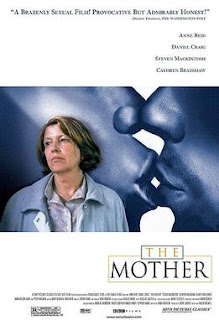SUMMARY, by Dora Sarrión
They were eager to go to school and tell their classmates about their new gift.
But Isabel told her sisters that, because she was the oldest, she was going to explain to their classmates about the doll’s house, and to decide which classmates were going to see the house in person.
The next morning, during the playtime at school, Isabel was surrounded by her classmates waiting for her explanation about the details of the house. But not every girl could approach her. Lil and Else Kelvey couldn’t.
The school was not as sophisticated as Burnell parents would like. Because they lived in a remote area, the school contained students from several demographic and economic backgrounds. The children of wealthy parents separate themselves from their socio-economically disadvantaged classmates on the playground. The Kelvey sisters were the poorest students at school. Their mother was the village washerwoman, and everyone in the city said that their father was in prison.
Like their classmates, Else and Lil were fascinated by the explanations about the doll’s house, but they couldn’t participate in the conversation, they could only overhear how Isabel was proudly describing it. When Isabel finished, Kezia reminded her to mention her lamp, even though no one else seemed to care about it.
Isabel chose the first two girls who were to come back with them that afternoon to see the house, and said that everyone was going to have a chance in the future to see it. Only the Kelveys knew they will never be chosen.
One day Kezia asked her mother if she could invite the Kelveys to see the doll’s house, but Mrs Burnell refused it, and at Kezia’s insistence, she answered “Run away, Kezia, you know quite well why not”. But she didn’t understand.
As the days passed, almost all the children were amazed at how wonderful the doll’s house was. But there was a moment when everyone had seen the house except the Kelveys, and, as it seemed that the subject was beginning to languish, the girls decided to make fun of the Kelveys sisters; but their reaction was only silence, so this new adventure of making fun of them did not seem to have much success.
Later that afternoon, when Kezia was at home swinging in the courtyard, she saw the Kelveys coming in the road towards her. She invited them in to see her doll’s house. But Lil shook her head quickly and reminded her that they weren’t supposed to talk to each other. Kezia assured that it didn’t matter what her mother said, that they could come in and see her doll’s house because nobody was looking. Lil still didn’t want to go in, but Else, standing behind her, tugged at her dress and looked at her pleadingly.
Kezia leaded the girls inside the courtyard, but while she was showing the house, Aunt Beryl arrived and shouted furiously at her. She shooed the Kelveys out as if they were chickens, and she slammed the doll’s house to.
Lil and Else ran away scared by Aunt Beryl, and when they could no longer see the Burnell’s house, they stopped to take a break. They didn’t say anything to each other; in silence they looked at the landscape; Else approached her sister, caressed her, smiled, and said softly:
“I saw the little lamp.”
I think in this story there are several interesting topics to discuss, but in my opinion, the relationship that the writer establishes between Else and Kezia through a lamp is fascinating. Both characters are different from the rest of the members of their families: Else is quiet, but she is clear about what she wants to achieve, she is not afraid, and Kezia does not understand the reasons why she cannot talk to the Kelvey sisters, and she is breaking the rules.
And they are both united by a lamp, which, in my opinion, would be the symbol of hope for change.
QUESTIONS
-What do you know about A Doll’s House, by
Henrik Ibsen?
-Is there any solution to avoid giving sexist toys to
the children?
-What was your favourite toy when you were a child?
-In the story, there seems to be a bullying problem
against the Kelveys. Did you feel this problem when you were at school?
-Are you in favour of mixing children of all condition
in the same school? In your opinion, do the parents have to have the right of
choosing the school for their children?
-“Even the teacher had a special voice for them [the
Kelveys]”. When we talk about bullying, we usually think it is something between
students. But what happens when the teacher is involved in the situation?
-Why do you think the narrator says “our Else” instead
of only “Else”?
-According to your point of view, why Kezia decides to
show the house to the Kelveys?
-Why was Aunt Beryl so angry when Kezia showed the
house to the Kelveys? Were her reasons the same as Kezia’s mother’s?
-Were the Kelveys happy in the end? What is a “rare
smile”?
VOCABULARY
feed-room, slab, toffee, papered, traipsing, bossy, tarred,
palings, roll (was called), Nudging, shunned, spry, freckles, quill, cropped
(hair), made eyes, snapped, sell, titter, buggy, thieved out, buttercups, shooed
... out
AUDIOBOOK THE GUARDIAN








